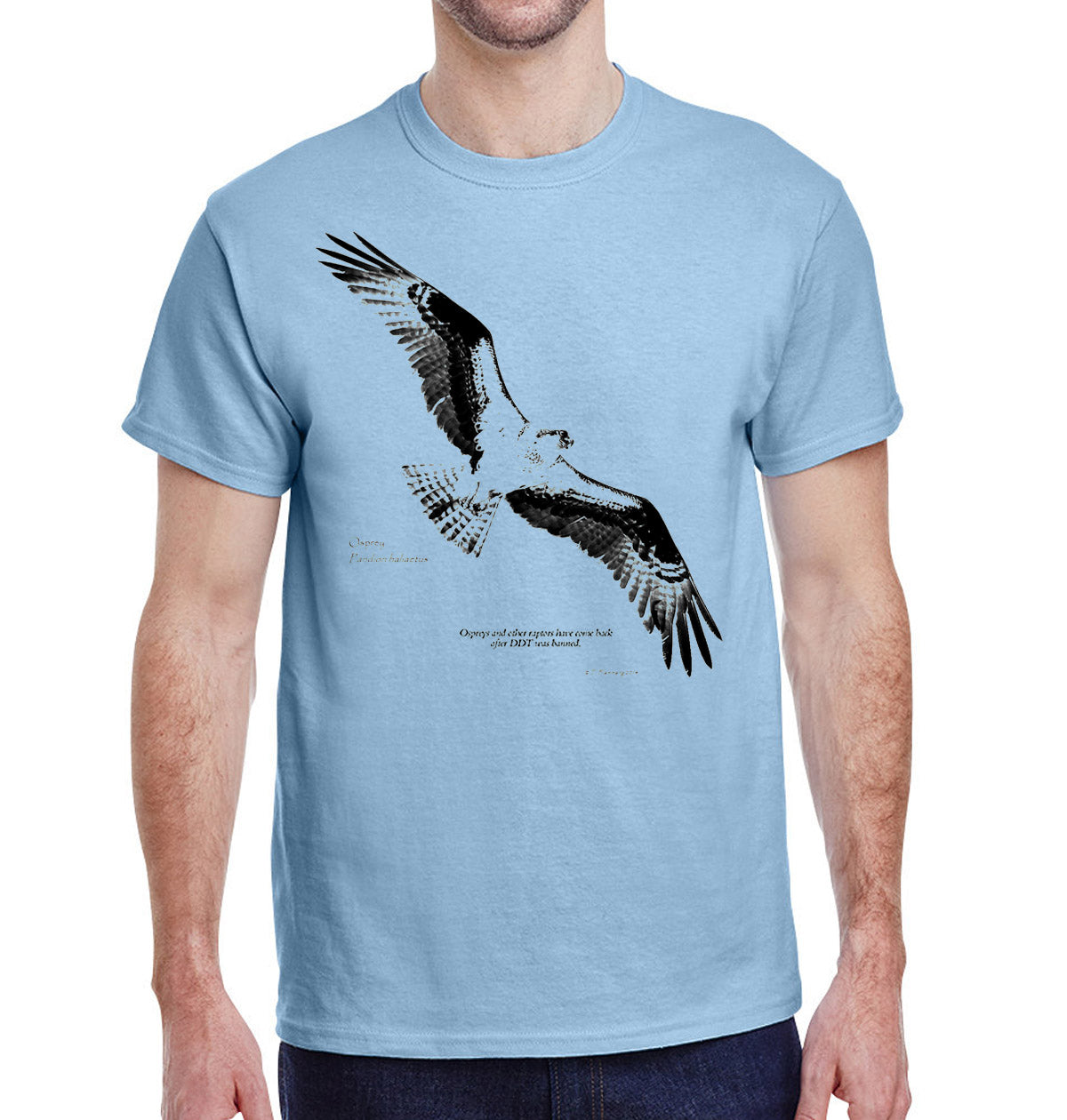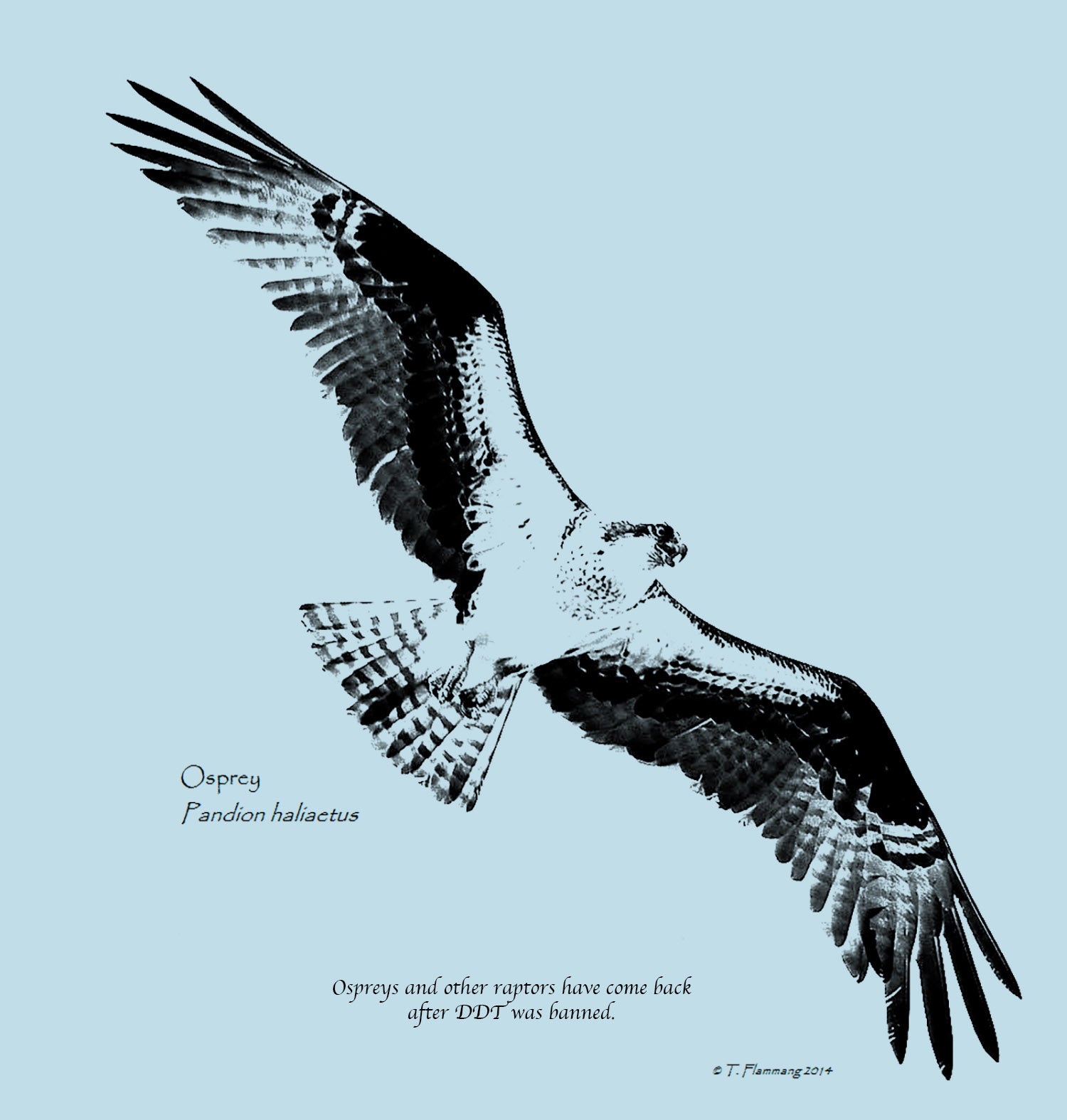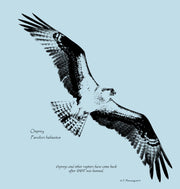Soaring Osprey
Size chart
Length & Chest Measurements Displayed in Inches (in.)
Unisex Classic Heavyweight Tee / Long Sleeve
Weight: 6 to 6.1 oz.
100% Cotton tee with a relaxed fit
Unisex Soft Organic Tee
Weight: Mostly 5.5 oz.
100% Organic cotton, soft feel, and makes Mother Earth Happy.
Women's Boxy Heavyweight Tee
Weight: 6.8 oz.
100% Cotton

Women's Soft Relaxed Fit Tee/ Long Sleeve/ V-Neck
Weight: 4.4 oz.
These T-shirts have super soft fabric and are tailored for women. Sizing is smaller than a classic unisex t-shirt but still intended to provide a comfy, loose fit with a subtle hourglass shape, more open neckline and shorter sleeves
Women's Organic Soft Slim Fit
Soft feel and the best choice for Mother Earth. Tailored for women who appreciate a form fitting t-shirt. If you prefer a looser fit simply order a size up

 Sweatshirt Heavyweight
Sweatshirt Heavyweight
Extra thick, soft and warm!
** These run noticeably larger (6'' wider) compared to our classic tees**
Hoodie/ Midweight
Fashionable and ideal for layering, they feel like a soft long sleeve tee but with the bonus of a warm hood and pouch for your paws
 Women's Tank Top Soft Slim Fit
Women's Tank Top Soft Slim Fit
Soft blend of 60/40 cotton/polyester, T Back style, perfect for yoga and workouts

Youth Tee
Description
"This is on of my favorite shirts to wear. My friends like it too. Just in the last few days, I encountered one birdwatching friend on the bikepath wearing it and another neighbor wearing it."-Jim Morris
A soaring osprey is depicted from below with its common and scientific names and the phrase "Ospreys and other raptors have come back after DDT was banned" on this wildlife t-shirt.
There was a boom in the chemical industry in the 20th century, with many new plastics, drugs, and industrial and agricultural chemicals being introduced. Many of these chemicals seemed miraculous, and in a way they were, but many also had dire unintended consequences, such as causing cancer and birth defects.
DDT was one of these exciting new chemicals. Initially used to control malaria and typhus, DDT was freely available for agricultural use in the United States by 1945. Even in the 40s scientists were questioning the safety of DDT, as it killed beneficial insects such as pollinators and had the potential to throw off the natural balance and kill many animals unintentionally. The publication of Rachel Carson's Silent Spring in 1962 sparked public outcry, and some would say the modern environmental movement itself, by exposing the drastic impacts of DDT and other pesticides on ecological and human health. DDT was shown to thin the eggs of water birds; DDT is hydrophobic, so it bonds to aquatic particles and surfaces. It was thus sequestered in the fat stores of fish, then transferred to their avian predators, where it interfered with calcium metabolism and thus egg production.
After years of legal battles between the agrochemical industry, the EPA and USDA, and the Environmental Defense Fund, an organization founded by lawyers and scientists specifically to ban DDT, DDT was officially banned for agricultural use in 1973. In 2004, DDT was banned for agricultural use by more than 170 countries.
Ospreys and many other raptors have recovered marvelously since these bans. In order to prevent similar fiascoes, new chemicals must be exhaustively vetted. Currently, new chemicals are "innocent until proven guilty" of being dangerous or carcinogenic. The USDA and EPA ought to be neutral scientific bureaus, but big money and economic concerns sometimes cause science to fall to the wayside. We must be vigilant about getting big money out of government and assuring that we are all protected from pervasive dangerous chemicals.
A portion of the proceeds for the sale of this shirt goes to S.O.A.R.
Artwork by Tyler Flammang, a naturalist at the Dorothy Pecaut Nature Center in Sioux City, Iowa.




